A call for more research in plastic waste management
Mar 28, 2019
Proper policies, awareness creation and enforcement will help in the reduction of plastics in the environment, says Dr. Kisamba-Mugerwa.

ENVIRONMENT
KAMPALA - Dr. Wilberforce Kisamba-Mugerwa has called for more research in plastic waste management.
The former National Planning Authority (NPA) chairperson said research should focus on how plastic waste can be managed without affecting the environment and the health of Ugandans.
He mentioned this on Thursday in his keynote address during the inaugural National Conference on Plastic Waste Management at Makerere University's main campus in Kampala.
Proper policies, awareness creation and enforcement will help in the reduction of plastics in the environment, said Kisamba-Mugerwa, who has previously also served in different roles in the political world.
He rallied for the education and training of garbage collectors on proper ways of disposing of plastics.
Most of those who attended the conference were students, with a few town clerks also making an appearance.
Kenneth Tumusime (pictured below), the managing directors of Plawaste Recycling Company Ltd, was the convener of the conference. He said Ugandans can generate wealth through recycling of plastics.
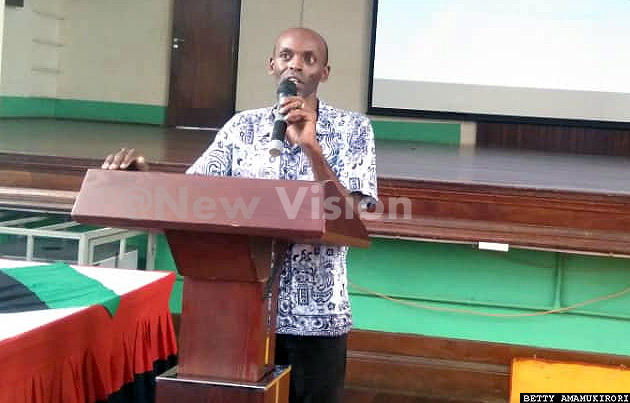 Kenneth Tumusime
Kenneth Tumusime
Recycled plastics can be used in building and in the making of bags, sandals and mats - plus several other stuff.
Some artists are known to use platics in their work.
But Tumusiime warned against burning of plastics, saying they have chemicals that can be hazardous to both human health and the environment.
He encouraged the recycling and picking of used bottles then sorting and packaging them in away that does not affect the soils. This, he underlined, is the only way to save the soils from choking.
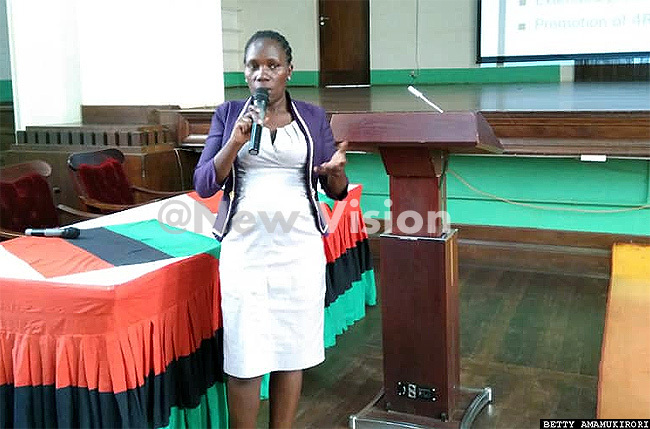 Bernadette Attai
Bernadette Attai
Meanwhile, Bernadette Attai, who works with Plawaste Recycling Company Ltd as regional training co-ordinator, said communities should be encouraged to sort out plastic waste as an income-generating activity.
Beverage companies, she said, pay for such waste and this can be a way of creating employment while at the same time safeguarding health and environment.
Attai said local leaders such as local council chairpersons and clerks should rally their subjects to sort their plastics. Even the transport sector can be involved in sorting out plastics that are dumped in especially public vehicles.
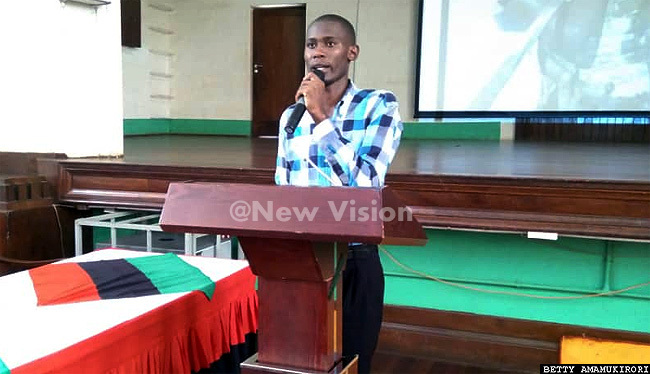 Eng. Frank Muhairwe
Eng. Frank Muhairwe
Did you know that plastics take 450 years to decompose?
Eng. Frank Muhairwe (pictured above), a training officer at Plawaste, took the attendees through the process of using plastics to make gas for cooking - instead of letting plastic materials to choke the environment.
Here is how:
- Collect and shred the plastic and then feed it into a metallic drum (reactor), which should be airtight.
- An aluminium foil is wrapped around it to also ensure that no heat escapes.
- After this, it is connected to a valve which connects it to a filtering metallic cone-shaped tube.
- Heat is then applied to the drum to melt the plastic at a temperature of 450°C.
- The gas which is filtered is collected over water, compressed using a compressor and then stored in a cylinder, ready for use. The same process can be used to produce other fuels such as biodiesel.
Muhairwe said this will help the country save its forests from being depleted for cooking.
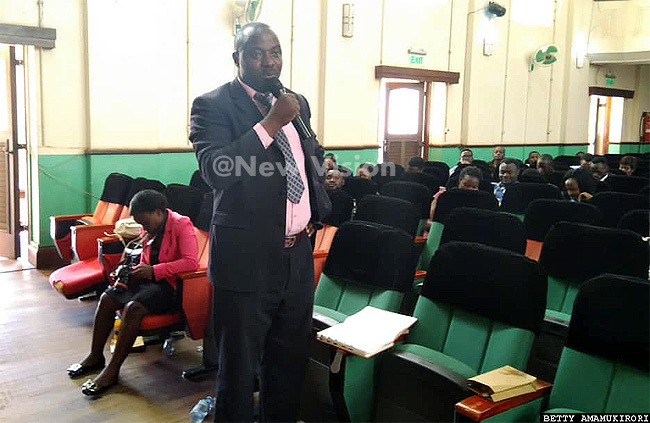 Jamadah Kajoba
Jamadah Kajoba
In his discourse, Jamadah Kajoba (pictured), the deputy mayor of Mukono Municipality, said there is need for awareness creation in the communities such that people take it as a personal responsibility to sort their waste.
He said Mukono generates 200 tonnes (200,000kg) of waste daily, but only 50 tonnes (50,000kg) are collected and sorted. The rest is left in the environment. "If you involve the public to manage their waste, we won't have this problem to deal with," he said.
Kajoba suggested that plastic manufacturing companies should be made to pay a fee to local governments to help in the management of plastics, saying it is becoming increasingly expensive for them to manage it.
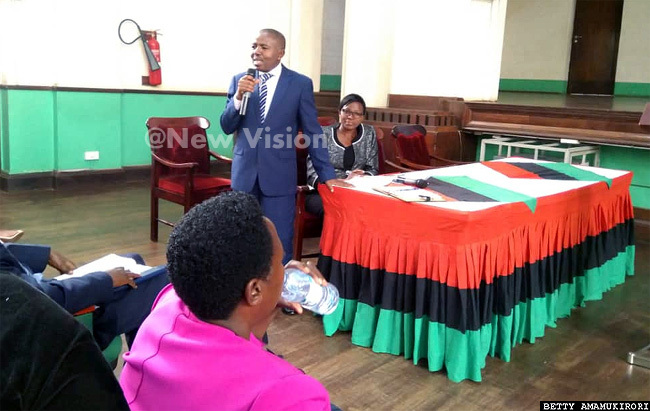 Theo Tibihika
Theo Tibihika
Theo Tibihika, the town clerk of Rukungiri, said there is need for a national decision and consensus on waste management. He urged government to commit to waste management and take the mantle as the regulator of the whole process.
Tibihika said the process of garbage collection should be left to the private sector such that government does the monitoring and supervisory role.
Currently, Rukungiri has one garbage collection truck serving three divisions. It is not enough, said the town clerk.
